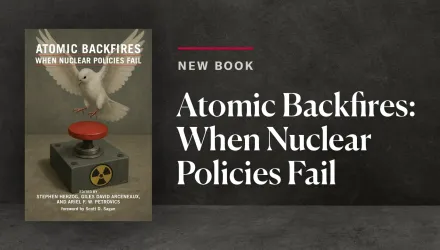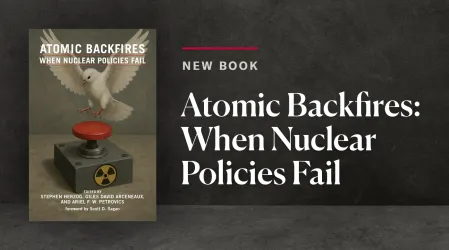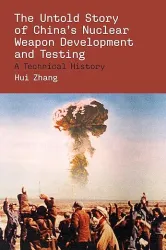BEIRUT—We should be cheering the fact that the American and Iranian foreign ministers are now trading accusations in public about who is to blame for the lack of a full agreement in last week’s Geneva negotiations on the issues of Iran’s nuclear industry and the UN and American sanctions on Iran. It is so much healthier to have the foreign ministers exchanging ideas of how to reach a negotiated agreement than to have them threaten each other with more sanctions and faster development of nuclear capabilities.
Iran today is the most important country in the Middle East in political and diplomatic terms, because its conduct and relations with others impact more issues in the region and the world than any other country in the short term. The last decade has seen Iran, and its allies Syria and Hizbullah primarily, working together in an alliance that has been in ideological, political and military confrontation by proxies with a counter-alliance led by Saudi Arabia in the region and by the United States and Israel beyond the Arab world. Iran is directly and actively linked with every major conflict or significant ideological frontier in the area, including Lebanon, Hizbullah, Hamas, Palestine, Syria, Iraq, Saudi Arabia and the Gulf Cooperation Council, Turkey and Afghanistan.
A negotiated resolution of the Iranian sanctions/nuclear issues on the table would have profound and positive impacts in all of these situations. An economically robust Iran would mean that the center of gravity of the region would adjust to account for the two productive trade dynamos of Iran and Turkey on the edge of the Arab region, to complement the Arab world’s more immature and energy-related, mostly non-productive, rentier-oriented economies. Normal diplomatic relations between Iran and Western states would also cause changes in Iran’s relations with Syria and Hizbullah, probably more in terms of toning down this tripartite alliance’s anti-Western tone in favor of seeking more integration of the three parties into the region’s politics, culture and economies.
It would also force a reconsideration of the really silly feud between Iran and Saudi Arabia, probably triggering discussions about a Helsinki-like broad agreement on Iranian-Arab-Western relations (sorry, Israel, your time is not yet here for this sort of collaboration). Such an agreed regional security-political-cultural framework for interaction and cooperation would tone down aggressive postures all around, and allow individual countries to develop in their own manner. If Iran, Saudi Arabia, Syria, Hizbullah and others in the region were less consumed by ideological fervors and active confrontations, they would find themselves having to respond to the demands of many in their own populations for transitions to more modern, liberal, productive and humane societies, perhaps even democratic ones.
Just as Helsinki in the mid-1970s non-violently triggered the eventual collapse of the Soviet Union and its empire 15 years later, so would a rapprochement between Arabs, Iranians and the West create conditions inside Iran that would inevitably change its ideological configuration and allow a more natural resumption of historical evolution in the country, which is what a majority of Iranians seems to want. I suspect that robust economic growth and the absence of a confrontational siege relationship with foreign countries would allow Iranian forces of pragmatism and liberalism to expand their activism inside the country, and eventually—perhaps within 5-7 years—bring down the tattered remnants of the hard Islamic revolutionary regime that still dominates the country’s power structure. A transition to a more democratic and less Islamist political-social order would basically require allowing the Revolutionary Guards and related military and hard ideological forces that bolster the regime to keep their economic and other privileges, and to remain unpunished for any of their past excesses—just as happened to the old guard in South Africa and the Soviet Union, who retained their wealth and land after the transitions there.
A reconfigured, less militaristic and more relaxed Middle East—in other words, more normal societies, rather than the abnormal ones of today—would be one of the consequences of a negotiated resolution of the Iranian sanctions/nuclear issues. The significant progress achieved in Geneva last week is commendable, and augurs well for a full agreement soon. What is less understandable is why the American-led Western countries waited ten years to reach this point, when the basic Iranian positions in Geneva on capping enrichment and allowing inspections had been offered a decade ago. Historians and psychologists of the deficiencies of democracy will have to clarify that for us one day. Or perhaps it reflects the acknowledgment in the West that threatening and sanctioning Iran only speeded up the latter’s nuclear capabilities, rather than collapsing them.
For now, we should applaud the exchanges of accusations between the Iranian and American foreign ministers, because they occur within a context of very serious negotiations and reflect a clear desire by both sides to succeed. Such success is made more likely by the agreement last weekend between Iran and the International Atomic Energy Agency to allow for more inspections of Iranian facilities.
Rami G. Khouri is Editor-at-large of The Daily Star, and Director of the Issam Fares Institute for Public Policy and International Affairs at the American University of Beirut, in Beirut, Lebanon. You can follow him @ramikhouri.
Copyright © 2013 Rami G. Khouri -- distributed by Agence Global
Khouri, Rami. “American-Iranian Accusations Are a Good Sign.” Agence Global, November 19, 2013





